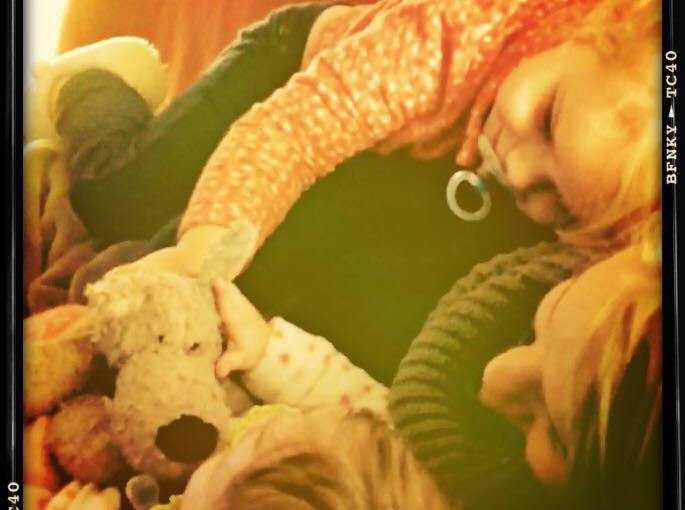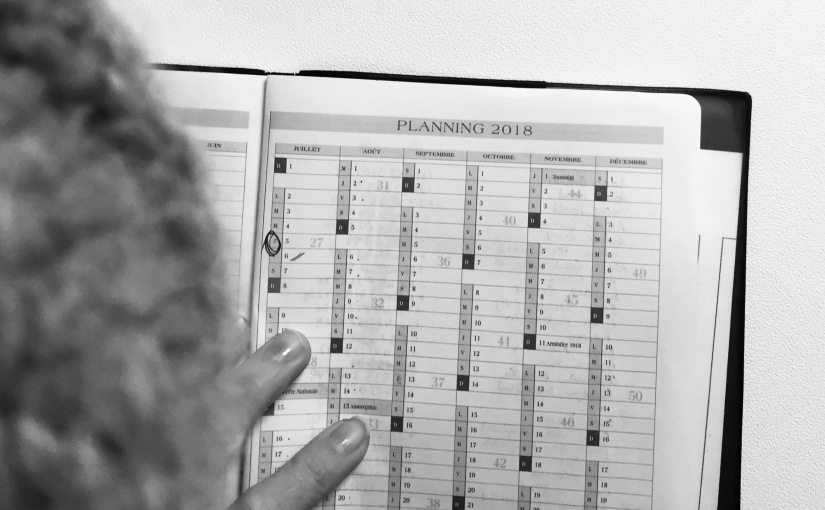Our two young daughters go to bed at 7 and 7.30 pm pretty much every night with the odd exception. We’re creatures of habit in our household and living in a country of free spiritedness, a somewhat caricature blind eye for punctuality and people who generally go to bed quite late; you can imagine it hasn’t always been the easiest ride. Words like ‘a set bedtime’, ‘schedule’ and ‘planning’ are often jokingly referred to as ‘very Anglo-Saxon’.
It is ofcourse a matter of everyone’s own culture and habits and I’m a firm advocate in letting parents just do their own thing when it comes to raising their kids. Like any article, I’m not writing this to prove a point nor to discredit people who put their children to bed later. Each to their own for sure! I write about what I experience and what I’ve researched, and share it with others to do with it how they please.
So why do I like to ‘hang on’ to our schedule as much as possible? That’s because our kids are happier and more fun to be around when I stick with a consistent (and, to some, an early) bedtime and nap times. Research repeatedly shows that putting kids to bed early is beneficial for their physical, emotional, and cognitive development. Not only do kids tend to sleep more when the lights go out sooner, but they also may get a greater proportion of restorative sleep, too (M.Wener Moyer,2016). And I’ll be honest; early bedtimes are also great for our own sanity as their parents. We love our children more than anything in the world, but we also love each other and need our grown-up time (and no I don’t always mean ‘that’, get your minds out of the gutter 😉
Does this mean my children sleep better than other kids? Probably not, but what I’ve learned so far is that each child is different and having a good sleeper is like winning the lottery. What it does mean is that both our girls respond well to having their routine and going to bed around a certain time seems to work for all of us. If they don’t fall asleep straight away, they’re at least resting in their beds until they do. We’re of course still tired (like any parents of children under the age of 5) and we’re no stranger to a bad night here and there, but in the scheme of thing, sleeping is not a problematic issue in our house. (Tantrums because mommy laid out the wrong socks… now that’s another story…).
Below are some of the key points we tend to follow that have worked best for us and that we live by, giving us well rested younglings and a certain sense of sanity ourselves as their parents.
- The Kind of Sleep they get
There are a number of studies that have shown children who go to bed earlier subsequently sleep longer. Pediatrician and author Marc Weissbluth states “when a child sleeps is probably as important or maybe more important as how much”. (Healthy Sleep Habits, Healthy Child, 1987) That’s because the sleep that happens earlier in the night tends to be more restorative than sleep that takes place later at night and in the early morning. So putting your kid to bed early may ensure that a higher proportion of their sleep is a more restful kind (M. Wenner Moyer, 2016).
- Bedtime routine as a well-oiled machine
The one thing our kids like the most about their bedtime is that they know what to expect. The routine of: cleaning up their toys, brushing their teeth, reading a bedtime story and lights out straight after has become second nature. Does this mean they go to bed like robots without putting up a fight? Actually, luckily the 1 year old still does yes, so I’ll ride that train for as long as I can. However, our 4 year old daughter has recently started testing this out to see if she could squeeze in another story or she wants another drink (which often she gets). But despite giving in to some of her demands, she stays in bed and won’t come back downstairs. Bedtime stays bedtime, even if they don’t fall asleep straight away.
- Understanding and Working with the Internal clock
My husband and I both work, so we’re all dressed and ready to go at 7.30 am each morning. As our girls generally wake up some time between 6.30 and 7 am, this suits us just fine. Fast forward to the weekend and we wished that wake-up times would extend by just a few hours. After a busy week a ‘sleep-in’ would be the bees knees, but we had to quickly accept that children don’t differentiate the week from the weekend, especially when it comes to sleeping. We determined that, given a choice, early wake ups on the weekend and watching them play from the couch trumped grumpy and rushed kids during the week anytime.
We’ve often been given the advice to simply put the children to bed later if we want them to sleep longer the next day, and we’ve tried this on numerous occasions. It makes sense; as adults or even teenagers we love a good sleep-in after going to bed later, however it doesn’t work that way for young ones. “Again, the internal clock is a powerful force that typically wakes young children up around the same time every morning, no matter what time they go to sleep at night,” says Dr. Meltzer. By keeping our children up late, they miss their initial sleep cues and become ‘over tired’ which then leads to a longer battle to fall asleep, subsequently leaving them crankier the day after. So unless there’s a special event (like big family gatherings, holidays etc) we tend to stick to our usual times to give them the 10-12 hours of sleep they need.
- Reducing stress before bed
Another trigger that can possibly impact sleep (for everyone) is the stress hormone: cortisol. When our cortisol levels are high it prevents our bodies from calming down and going to sleep. A good way to try and avoid excess amounts of cortisol before bedtime is to keep activities before bed low key, calm and fairly quiet. I’m not suggesting you set up a meditation hut in your living room, but perhaps the ‘dance party’ could wait until morning…?
- Allow for trial, error and growth
None of our routines, tricks and tips happened overnight and a lot of the things that do work for our children were found through trial and error. As mentioned earlier, each child is different, and some routines might work wonders on one child and miss another. The key is to establish what works for you as a family unit and building your habits and routines from there.
Routines also change considerably as our children grow, experience different daily activities, develop their own interests and fears and, just like us, start to process and reflect on the day they just had… all of which can impact their sleep.
A number of studies over the years have developed sleep recommendations for children according to age based on a 24-hour period (including nap times for the younger ones):
Infants 4-12 months: 12-16 hours of sleep
Kids 1-2 years old: 11-14 hours of sleep
Kids 3-5 years old: 10-13 hours of sleep a night
Kid 6-12 years old: 9-12 hours of sleep a night
Adolescents 13-18 years old: 8-10 hours of sleep a night
When looking at these guidelines, perhaps we should ask ourselves if our children are getting the amount of sleep their body really needs rather than stressing at what time we’re putting them to bed.
Look at your own routines/schedules and what works for you and your family. At our house we’re dressed and ready to go by 7.30 am for school/work so perhaps our ‘early’ bedtime of 7-7.30 pm isn’t so crazy after all? ;)!
Good luck and good night !!









 Often, when writing psychology related articles, my topics tend to focus on understanding problem areas, dealing with struggles and how to cope with challenges. The stigma around ‘having a problem’, as being the main reason why someone would need to see a mental health professional, is still very present. However, the study of Positive Psychology (or as some are calling it ‘the science of happiness’) is growing and people are focusing more and more on the strengths that lie beneath and how to access these even before any ‘problems’ arise.
Often, when writing psychology related articles, my topics tend to focus on understanding problem areas, dealing with struggles and how to cope with challenges. The stigma around ‘having a problem’, as being the main reason why someone would need to see a mental health professional, is still very present. However, the study of Positive Psychology (or as some are calling it ‘the science of happiness’) is growing and people are focusing more and more on the strengths that lie beneath and how to access these even before any ‘problems’ arise.